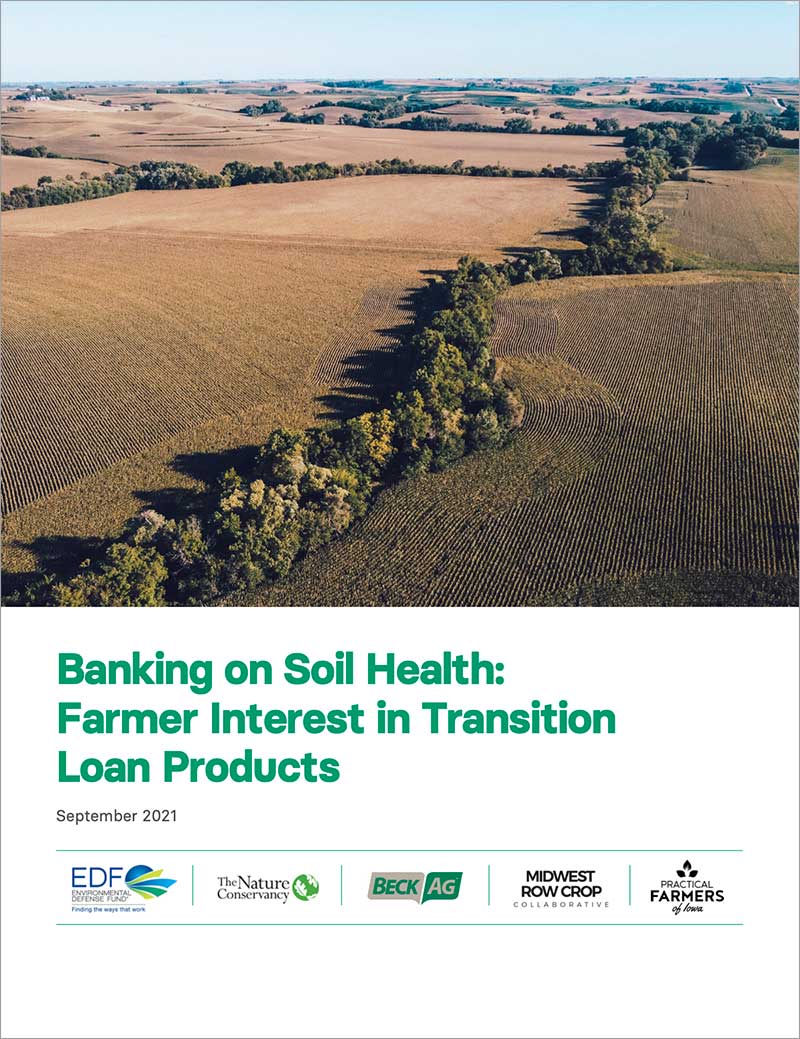Banking on Soil Health: Farmer Interest in Transition Loan Products
Everyone in the agriculture sector has a stake in better understanding the financial impacts of soil health practices, particularly farmers and their financial partners.
Healthier soils come with multiple opportunities for farmers to improve water quality and crop yield resilience, meet consumer demand and support supply chain initiatives, and participate in emerging carbon markets.
A new report — Banking on Soil Health: Farmer Interest in Transition Loan Products — conducted by Environmental Defense Fund, The Nature Conservancy and agriculture market research firm Beck Ag, analyzes interviews with 100 Iowa farmers to better understand their interest in transitioning to soil health practices like cover crops, conservation tillage and nutrient efficiency, and tests multiple ways lenders could support the transition.
Key findings
- Only 35% of farmers discuss soil health practices with their lenders.
- While just 40% of farmers surveyed believe that soil health practices improve profitability in the first year or two of adoption, nearly 90% stated that they improve long-term profitability.
- When presented with an example soil health transition loan product that included either a 1% interest rate decrease or $10 per-acre cost share incentive, half of surveyed farmers were interested in participating.
Key recommendations
Farmers who adopt soil health practices enhance their long-term profitability and farmland value, which can translate to reduced risk in agricultural loan portfolios. Lenders can capitalize on these opportunities in multiple ways:
- Increase understanding of the risks and opportunities in lending portfolios and the role soil health practices can play to create value for lending institutions.
- Talk to farmer clients about soil health practices and their economic and environmental value.
- Develop and test soil health transition loans.
- Incorporate long-term financial projections of soil health practices when evaluating loan opportunities.
